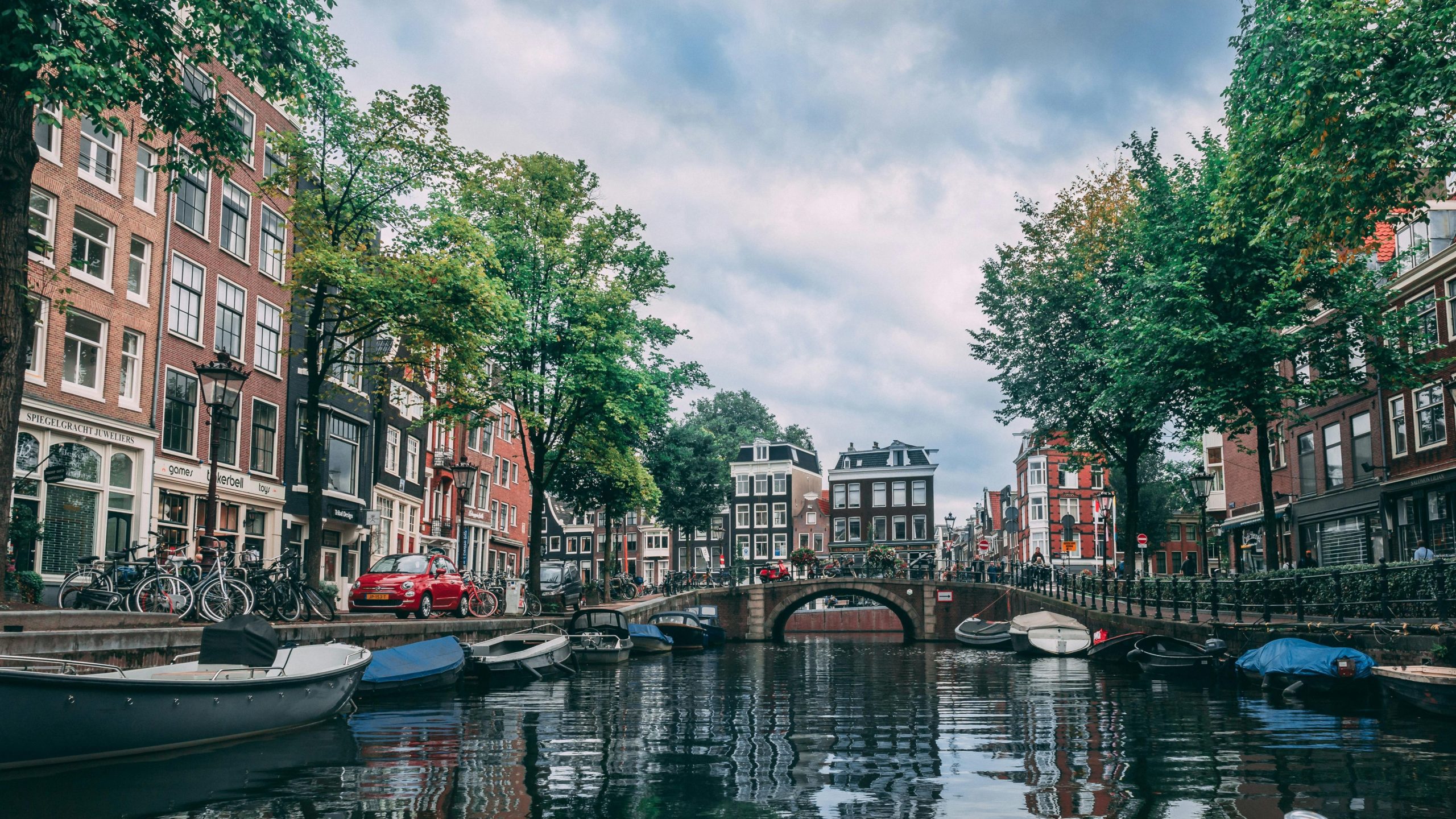Dreaming of exploring Switzerland but worried about the costs?
Known for its breathtaking landscapes and high living costs, Switzerland might seem beyond reach for budget travellers.
Fortunately, with careful planning and smart choices, experiencing Switzerland on a budget is entirely achievable.
This guide will walk you through crafting a budget-friendly itinerary, finding affordable accommodations, saving on transport and food, and enjoying free or inexpensive activities across Switzerland.
Crafting Your Switzerland Budget Itinerary: Suggested Routes
Crafting a budget-friendly itinerary for Switzerland involves strategic planning to make the most of your travel experience without breaking the bank. A great way to start is by choosing a base city like Lucerne or Bern and exploring nearby destinations through day trips. This approach not only saves on accommodation costs but also reduces the hassle of constant packing and unpacking. For a week-long stay, consider exploring the diversity of the Central Switzerland region from Lucerne, which offers easy access to mountains, lakes, and charming towns all within a short train ride.
For those who have more time, a two-week itinerary could cover a larger area without rushing. Start your journey in Geneva, spend a few days exploring the city and nearby attractions like Lake Geneva and Montreux, then move towards Zermatt to witness the iconic Matterhorn. Continue to the Jungfrau region for stunning alpine scenery before concluding your trip in Zurich, where you can explore the city’s rich cultural offerings. This route allows you to experience a blend of urban and natural Switzerland, maximizing the value of travel passes and discounts.
If you’re planning an extended stay of a month or more, consider a more immersive experience by living like a local. Rent an apartment in a less touristy area like Basel or the smaller towns of the Valais region. From here, you can take your time exploring in-depth, perhaps even venturing into the less frequented areas such as the Jura mountains or the Graubünden canton. This slow-travel approach not only cuts down costs significantly but also enriches your experience, allowing you to discover Switzerland’s hidden gems and local culture.
Best Travel Seasons for a Switzerland Budget Itinerary
For budget-conscious travellers, timing your visit can significantly impact your expenses. The shoulder seasons of spring (April to June) and autumn (September to November) are ideal for visiting Switzerland. During these months, you can enjoy mild weather perfect for outdoor activities like hiking and sightseeing, while also benefiting from lower prices on flights and accommodations compared to the peak tourist seasons in summer and winter.
Autumn is particularly magical, as the landscapes turn into a palette of vibrant colours, and the tourist crowds have thinned out, making it easier to explore at your own pace. Accommodation prices drop and you can find better deals, especially in mountain resorts which are between their busy summer and winter periods. Additionally, many outdoor attractions remain open, allowing you to experience the beauty of places like the Bernese Oberland or the trails around Lake Lucerne without the high costs or the crowds.
Money-Saving Travel Tips for Switzerland
Switzerland is renowned for its efficient and comprehensive public transport system, which can be a boon for budget travellers. Invest in a Swiss Travel Pass that offers unlimited travel on consecutive days throughout the rail, bus and boat Swiss Travel System network. This pass also provides free or discounted entry to most of Switzerland’s museums and numerous mountain excursions. For those planning to stay longer, consider the Half Fare Card which offers 50% off on travels across most public transport networks in Switzerland for a month.
Another tip to keep your spending in check is to take advantage of the numerous free activities available across the country. Many cities offer free walking tours, which are a great way to get acquainted with the area. Additionally, look out for guest cards provided by hotels and hostels, which often include free or discounted public transport, cable cars, and entry to local attractions. By combining these offers with a well-planned itinerary that avoids hopping from one major city to another, you can enjoy the richness of Switzerland’s offerings without a hefty price tag.
Finding Budget-Friendly Accommodation in Switzerland
Switzerland, known for its stunning landscapes and high living costs, might seem a daunting destination for budget travelers. However, finding affordable accommodation is entirely feasible with a bit of know-how. Options such as youth hostels, Airbnb, and even more unique choices like sleeping on straw at local farms provide a range of prices and experiences. These alternatives not only offer a place to rest but also an opportunity to meet fellow travelers and gain a more authentic insight into Swiss life.
For those who prefer a more communal and interactive environment, hostels are an excellent choice. They are not only affordable but also offer facilities like kitchens where you can cook your meals, helping to cut down further on expenses. On the other hand, platforms like Airbnb can provide the comfort of a home at a fraction of the cost of hotels. For a truly unique experience, consider the sleep on straw option available at over 300 farms across Switzerland, which can be a charming and cost-effective alternative, especially in rural areas.
To secure the best deals on accommodation, booking in advance is key, especially during peak tourist seasons. Keep an eye out for last-minute deals as well, as these can sometimes offer significant savings. Additionally, consider staying in locations slightly off the beaten path; not only are these often cheaper, but they also offer a more serene and authentic Swiss experience. Combining these strategies will help ensure that your stay in Switzerland is as economical as it is enjoyable.
Navigating Switzerland: Transportation on a Budget

Traveling around Switzerland doesn’t have to be expensive if you know the right modes of transportation to use. Public transportation in Switzerland is not only extensive and reliable but also can be quite affordable with options like the Half-Fare Travel Card, which offers 50% off on trains, buses, and boats. For those looking to explore at their own pace, cycling can be a great option, especially since Switzerland offers numerous well-maintained bike paths between cities and scenic areas.
For longer distances, consider using car-pooling services like Blablacar, which connect you with drivers already heading to your destination, allowing you to split the cost of fuel. This is not only budget-friendly but also a great way to meet locals and other travelers. Alternatively, the Swiss Pass offers unlimited travel on consecutive days, which can be a cost-effective solution if you plan on traveling extensively across the country.
To maximize savings on transportation:
- Purchase tickets in advance whenever possible, especially for popular routes.
- Check for special deals and offers, particularly during off-peak seasons.
- Consider staying in a central location to minimize daily travel costs.
By combining these tips with the use of budget-friendly travel passes, you can explore Switzerland without it costing an arm and a leg.
Eating Well in Switzerland Without Overspending

Eating well in Switzerland while sticking to a budget is easier than you might think. One of the best ways to save is by shopping at local supermarkets and preparing your own meals. Many supermarkets offer discounted items towards the end of the day, which can be perfect for a budget-friendly dinner. Additionally, consider visiting local markets where you can buy fresh produce at lower prices than in regular stores.
If you prefer eating out, opt for lunch rather than dinner as many restaurants offer lunch specials at a reduced price. You can enjoy delicious Swiss meals like fondue or raclette without the evening price tag. Another great option is to check out ethnic eateries, particularly Asian or Middle Eastern, where you can enjoy a hearty meal for less than traditional Swiss restaurants.
Here are some practical tips to save on meals:
- Always ask for tap water instead of bottled water, as it’s free and safe to drink.
- Look for combo meals or daily specials in eateries.
- Use apps like Too Good To Go to purchase leftover food from restaurants at a reduced price.
These strategies will allow you to enjoy Switzerland’s culinary offerings without breaking the bank.
Free and Low-Cost Activities in Switzerland
Switzerland offers a plethora of free or low-cost activities that can enrich your travel experience without straining your wallet. Nature lovers can explore the numerous hiking trails in the Swiss Alps, many of which are accessible without any fees. Additionally, cities like Zurich and Geneva offer free walking tours, a great way to learn about the city’s history and culture from local guides.
For those interested in arts and culture, many Swiss museums offer free entry on certain days of the month. For instance, Museum Night in Basel allows free access to several museums and cultural institutions. Moreover, natural spectacles such as the Rhine Falls and the views from Rigi Kulm are completely free to visit and offer breathtaking sights of Switzerland’s natural beauty.
Here are some additional free or low-cost activities:
- Visit local markets and festivals, which often have no entry fee.
- Spend a day at one of the many public parks or lakes, where you can relax or enjoy a picnic.
- Look out for community events and concerts, which are often free and open to the public.
By taking advantage of these offerings, you can enjoy a rich Swiss experience without spending a significant amount of money.
Essential Travel Documents for Switzerland
When planning your budget-friendly trip to Switzerland, the first crucial step is ensuring you have all the necessary travel documents. Tourists from many countries do not require a visa for short stays (up to 90 days) in Switzerland, which is part of the Schengen Agreement. However, it’s essential to check your specific country’s requirements before travelling. Key documents include:
- A valid passport, which should be valid for at least three months beyond your planned departure date from the Schengen area.
- Proof of sufficient funds to cover your stay in Switzerland.
- Travel insurance that covers medical expenses is highly recommended due to the high cost of healthcare in Switzerland.
Besides the standard documents, depending on your country of origin, you might also need to provide additional items such as a return ticket or a hotel reservation confirmation. For those needing a visa, the application process typically involves submitting documents including a filled visa application form, passport-sized photos, and a detailed itinerary of your stay. It’s advisable to apply for your visa well in advance to avoid any last-minute issues. Remember, having the right documents smoothens your entry into Switzerland, letting you focus on enjoying your budget-friendly adventures in this stunning country.
Enhance Your Itinerary: Discover Zurich with Indulge

When visiting Switzerland, particularly Zurich, you can elevate your travel experience without straining your budget by indulging in curated culinary tours offered by INDULGE. These tours are an excellent way to explore Zurich’s vibrant food scene while adhering to a budget. INDULGE specialises in providing guided food tours that delve into both Swiss culinary traditions and international cuisines found in Zurich. This unique blend of local and global flavours offers an enriching experience that goes beyond typical tourist activities. Here are some key features of these tours:
- Guided by local experts: Chefs, sommeliers, and food historians who know the ins and outs of Zurich’s culinary landscape.
- Variety of culinary themes: From historic Swiss dishes in Old Town to contemporary international flavours in Zurich West.
- Flexible durations: Ranging from quick 2.5-hour tours to extensive 4-hour culinary explorations.
For food enthusiasts and budget travellers alike, INDULGE provides an exceptional opportunity to taste over 15 Swiss specialties and international delights without breaking the bank. The tours not only offer a chance to savour delicious foods but also to learn about the history and culture behind Zurich’s traditional dishes. By choosing to participate in these tours, you can enjoy multiple benefits that enhance both your palate and knowledge of Swiss gastronomy. Here’s what makes these tours a must-add to your budget-friendly itinerary:
- Educational and enjoyable: Gain insights into the culinary history while enjoying varied tastings.
- Cost-effective: Experience premium dining experiences at a fraction of the cost.
- Exclusive access: Visit some of Zurich’s most iconic culinary venues not easily accessible to the general public.
Booking a tour with INDULGE can truly transform your visit to Zurich, making it a memorable gourmet adventure that respects your budget constraints.
Frequently Asked Questions
How much should I budget for a trip to Switzerland?
The budget for a trip to Switzerland can greatly vary depending on your travel style, duration of stay, and the type of activities you plan to engage in. It is advisable to consider costs for accommodation, transportation, food, activities, and any travel documents you might need. Planning ahead and making use of budget-friendly options such as Swiss Travel Pass, budget accommodations, and cooking your meals can help keep costs down.
Is it possible to do Switzerland on a budget?
Yes, it is entirely possible to explore Switzerland on a budget. By carefully planning your itinerary, choosing budget accommodations like hostels or Airbnb, using cost-saving travel passes such as the Swiss Travel Pass, and engaging in free or low-cost activities, you can significantly reduce your expenses and enjoy the beauty of Switzerland without overspending.
How much money is enough for Switzerland trip?
The amount of money you’ll need for a trip to Switzerland depends on various factors including the length of your stay, your accommodation choices, travel style, and planned activities. Budget travellers can manage with less by using strategies such as staying in hostels, using public transport with travel passes, and cooking their own meals. It’s wise to prepare a daily budget considering all these factors to estimate the total cost.
How much would a 7 day Switzerland itinerary cost?
The cost of a 7-day itinerary in Switzerland can vary widely based on your accommodation choices, travel routes, dining options, and the activities you include. Opting for budget-friendly accommodations, utilising travel passes like the Swiss Travel Pass, and eating meals prepared from supermarket purchases can help keep the costs manageable. Planning and booking in advance can also lead to additional savings.








